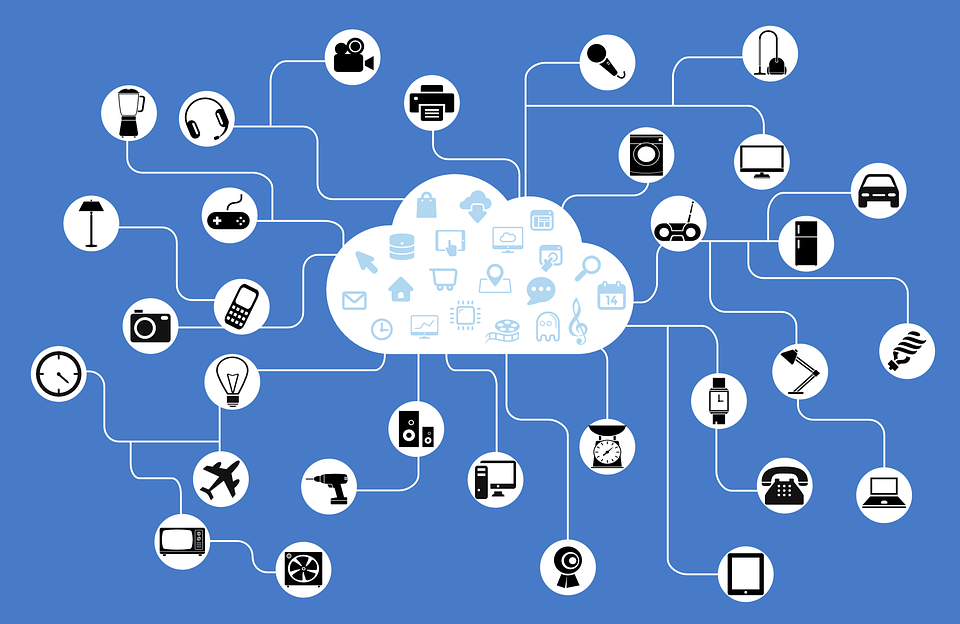Nu pierdeți cele mai bune locuri de muncă!
Abonează-te și săptămânal iți vom trimite un email cu ultimele locuri de muncă disponibile. Introdu adresa ta de email mai jos
The Tour de France seems like an unlikely event to highlight one of the most exciting sectors within the French tech industry, but recent changes to the way that rider data is being captured falls into an up and coming industry: The Internet of Things – and it's an area where French businesses are thriving.
What is The Internet of Things?
The Internet of Things (IoT) is an all-encompassing term for technologies that connect a variety of disparate devices, from mobile phones, smart watches, baby monitors, coffee makers, washing machines, headphones, fridges, bicycles…almost anything you can think of.
The IoT is a giant network of connected "things" where data can be shared between people and people, people and things, things and things.
In terms of the Tour de France, historically all the important and nerdy data that tracks the position of riders, check points, time gaps, average speed, rankings etc. was a fairly manual process, using stop watches and radios to relay the information back to those who needed it. For many riders there was no immediate information on where they were in the race, or how they were performing.
Now, the owner of the Tour de France, Amaury Sports Organization, is putting GPS sensors on every bicycle, transmitting the data to central servers, then to apps, websites, team managers and broadcasters. The racers and their bikes have essentially become data-collection points on the Internet of Things, and an exact positional fix of all the riders is recorded throughout every single second of the race. Which is pretty cool.
These improved efficiencies and the ability to quickly analyse large amounts of data from a variety of sources, is now opening the door to a growing number of innovative startups and entrepreneurs in the IoT sector.
French Tech Businesses Are Challenging The U.S.
Recognising that The Internet of Things can fundamentally change the way businesses and consumers approach the world, French startups have been particular proficient in creating new devices and services that help users navigate this new inter-connected landscape.
According to data from the Financial Times, over the past few years France has risen from nowhere, to second (only behind the US) in the number of new product launches within the IoT industry.
The French poster boy (or poster girl) is Sigfox. Founded in 2009 the French company is one of the most notable in the industry. It has raised over $150 million in funding and has ambitious plans to roll out their services to over 100 US cities by the end of 2016.
Located in Labege (the so called IoT valley) Sigfox connects low-energy devices (electricity meters, smart watches, washing machines) and has even collaborated with French postal service La Poste, creating a button on mailboxes that customers can press to alert La Poste when they have a package to send.
French technology companies are starting to steal the show and for good reason: the startup eco-system is vibrant and there are a number of innovative products that are starting to gain attention on the global stage.
Education & Government Funding Are Driving Innovation
In a recent interview with Bloomberg the CEO of Business France, Muriel Penicaud, cited the country's strong engineering background as one the driving forces behind the sudden surge in IoT and tech startups. With 1 million qualified engineers throughout the country, and 80,000 new graduates entering the work environment every year, this highly educated workforce has become a natural catalyst for tech innovation.
To support France's position as a leader in the sector, in 2015 President François Hollande opened Europe's biggest centre dedicated to Internet of Things. Part of the government's 200 million-euro La French Tech initiative, the 8,300 square metre facility in the city of Angers will help start-ups design and manufacture IoT devices.
Despite France's reputation as a country embroiled in bureaucracy, the claim to be a centre for dynamic young companies has some foundation. The tax structure actively encourages research and development, and France dominated the rankings for the fifth successive year in the Deloitte 2015 Top 500 index of Europe's fastest growing tech firms.
With the analyst firm Gartner predicting that by 2020 there will be over 26 billion connected devices, The Internet of Things has huge potential. Global spend is expected to increase from $656 billion in 2014, to $1.7 trillion in 2020, and French startups are in a strong position to truly make France a global force within the IoT industry.
Sign in to publish a comment

Be the first to comment on this post.